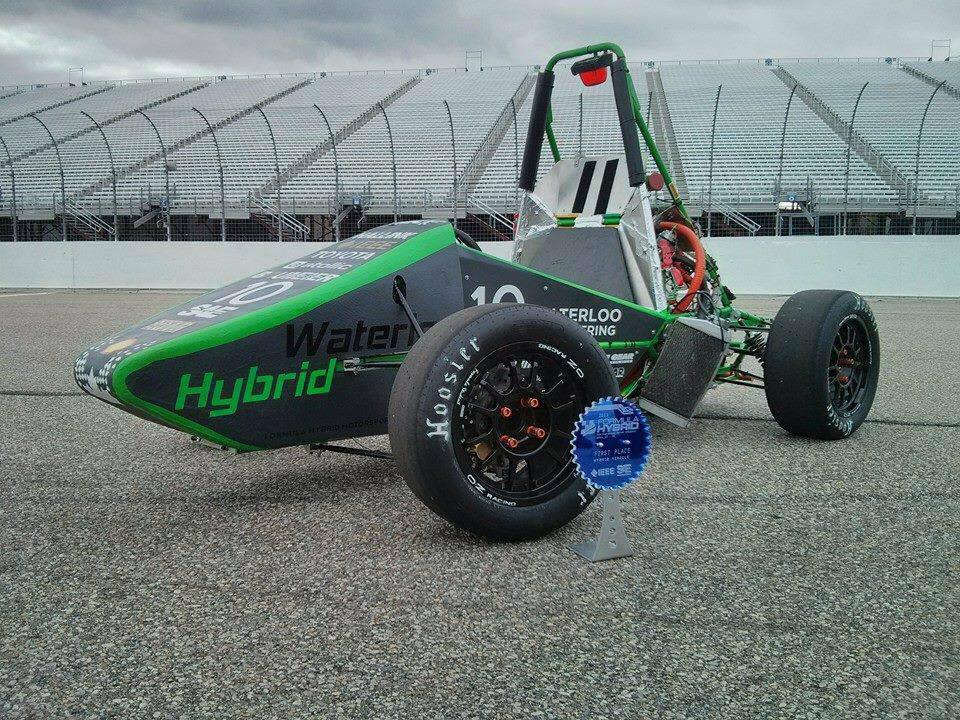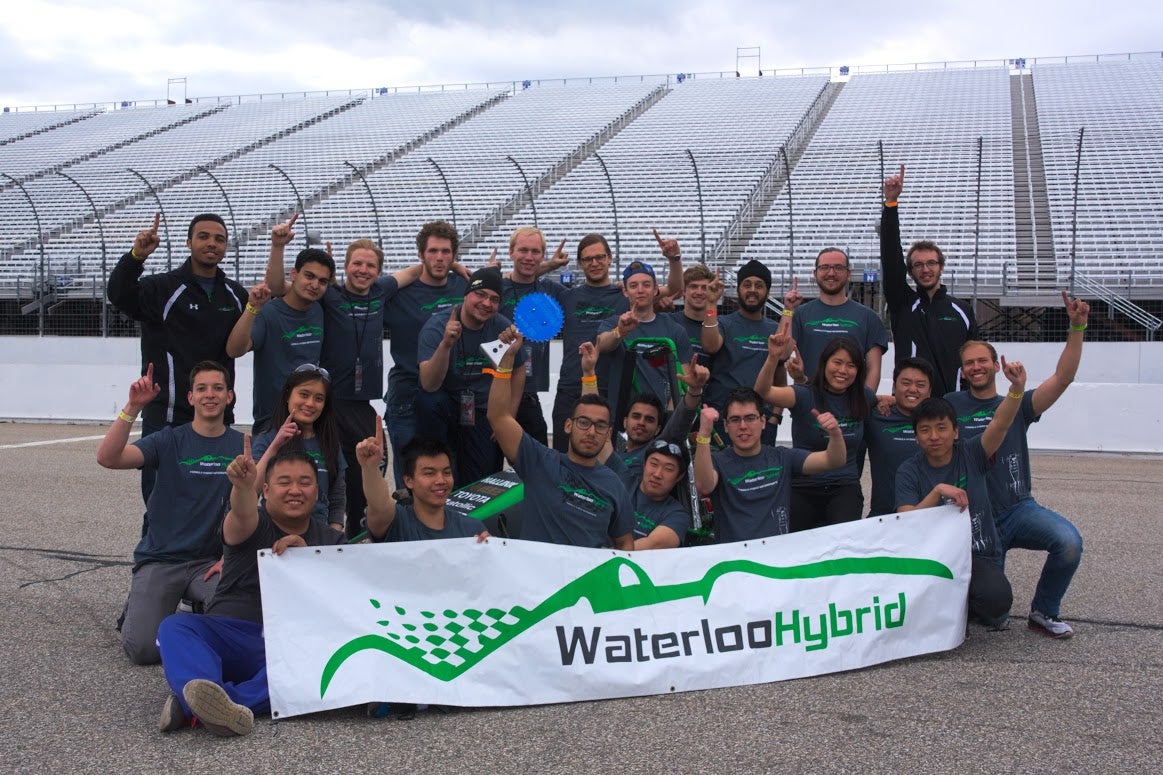Waterloo’s Formula Hybrid edged out other top university race cars at this year’s Formula Hybrid International Competition taking first place overall, winning another top award and setting a new all-time record in the total number of completed endurance laps.
Over 27 teams from as far away as Turkey and India competed at the New Hampshire Motor Speedway at the end of April. Part of the Institute of

Besides taking the top award, Waterloo came first in the competition’s autocross event and the endurance category by setting a new all-time record of 33 laps.
It takes a team
Comprised mainly of engineering students, Waterloo’s Formula Hybrid team is based in Engineering 5’s Sedra Student Design Centre that houses more than 20 student design teams.
"The main goal of the team members was to make their vehicle robust so that it could go through all the tests without any issues,” says faculty co-advisor Amir Khajepour, a Waterloo mechanical and mechatronics engineering professor.
What propelled Waterloo’s race car to victory? Rishi Chatterjee, business lead for the team, says it was the hard work of the dedicated team members who were knowledgeable about the vehicle.
“They knew how to go about sourcing solutions to new and existing problems,” says Chatterjee, a second year mechanical engineering student.
Completely redesigned
One of those problems was the race car’s electrical system. It was completely redesigned from the ground up after reliability issues during past competition results.
“Our electrical team is what provided us with cutting edge features, such as a custom battery management system, and new vehicle and driver control units,” explains Chatterjee. “Complementing those design changes, our mechanical team implemented various weight reduction techniques in components throughout the vehicle.”
Vehicle weight was decreased through innovative designs, such as a

“The team worked incredibly hard over the past four months to get the car ready,” says faculty co-advisor Andrew Trivett, a mechanical and mechatronics engineering professor. “It’s one thing to design a car, but the students have shown they can turn innovative ideas into practical hardware.”
According to Chatterjee Waterloo is a great place for student teams because team members gain real engineering experience.
“Members learn how to work on a schedule, with fixed costs and constraints,” he says. “Students also gain a vast amount of experience in design, manufacturing and testing. The support received from the University provides Waterloo Hybrid the push required to achieve better results.”
Fuelled by their recent victory, the team’s 38 members are already thinking about next year’s race car.
“The focus for 2016 will be design and ultimately implementing state-of-the-art systems such as in-hub motors, custom motor controllers, a larger capacity battery pack and a more refined vehicle,” Chatterjee says.